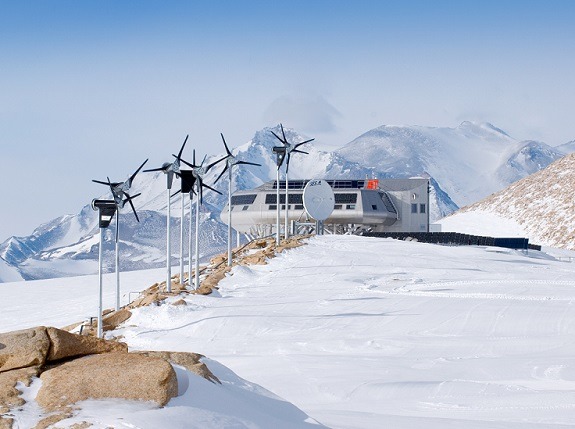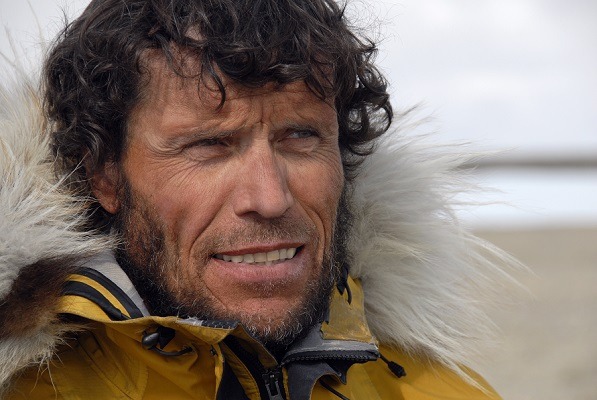Alain Hubert, co-founder and president of the International Polar Foundation, will receive the prestigious 2023 Belgica Medal.
The Royal Academy of Science, Letters and Fine Arts announced on Thursday that he will receive the medal alongside Dr Jérôme Chappellaz, a French glaciologist, at a ceremony to be held at the Royal Academy in Brussel in March 2024. Since 1963, the Belgica Medal has been awarded every five years in recognition of the work of polar scientists active on the Antarctic Continent.
The medal is awarded to Alain Hubert in recognition of his exceptional contribution to research in the polar regions, in particular his record-breaking polar expeditions, the establishment of important scientific research programmes and the construction of the world’s first Zero Emissions polar research station, the Princess Elisabeth Antarctica.
Dr Chappellaz is awarded the medal for his analysis of ice cores from Greenland and Antarctica, which have made it possible for scientists to reconstruct atmospheric methane concentrations over the last 800,000 years.
“It has been an honour and a privilege to have been able to contribute to the tradition of Belgian polar exploration and international polar research begun by Adrien de Gerlache, and to have helped Belgian polar researchers to benefit from a platform that fully exhibits their very considerable scientific prowess,” Alain Hubert said when he was told about the award.
He was referring to a Belgian sea captain who in 1897 followed the call of the Royal Geographical Society in London to explore Antarctica. Adrien de Gerlarche equipped a ship, called it the Belgica, and manned it with an international crew and a team of researchers.
It may come as a surprise to many that a small country like Belgium, far away from both the Arctic in the north and Antarctica in the south, is actively involved in polar research. The flagship of the current Belgian polar involvement is the Princess Elisabeth Antarctica Research Station.
The International Polar Foundation (IPF) was behind the creation of the station, which was officially inaugurated in 2007 as the first zero-emissions station. The station is located at an altitude of 1 382 meters and about 220 km from the coast, on the northeast side of Antarctica, with no other stations in the neighbourhood.
In an interview in 2017, Alain Hubert told The Brussels Times that Belgium’s desire to build a station in Antarctica was only driven by science. Born in Schaerbeek in Brussels, he is an entrepreneur, civil engineer, mountaineer and explorer, following in the footsteps of previous explorers who on their own decided to explore distant places under extreme conditions and to contribute to scientific research.

The Princess Elisabeth Antarctica Research Station is the first "Zero emission" polar research station with wind turbines, solar panels & a satellite dish. Credit: International Polar Foundation - René Robert
“A station in Antarctica is important for one major reason. Antarctica plays an important role for the balance of the climate on earth. It would be a planetary disaster if the sea level would rise as a result of the melting of the ice in Antarctica.”
In 2017, Antarctica was still covered by ice and the floating ice shelves were still there. “The big question is what would happen if the land ice would melt at a faster rate than the accumulation of snow and ice on the continent. If there is more ice lost to the ocean, sea levels would rise significantly.”
“Our part of East Antarctica, which is different from the Western part, still remains a ´grey zone´ because there is very little data available for this region,“ he said. “This is why the research here is so important. We are making progress, but it could take years to find the final answers to this crucial question.”
The Princess Elisabeth Antarctica Research Station functions both as a research centre and logistic hub for field expeditions.
The Brussels Times

